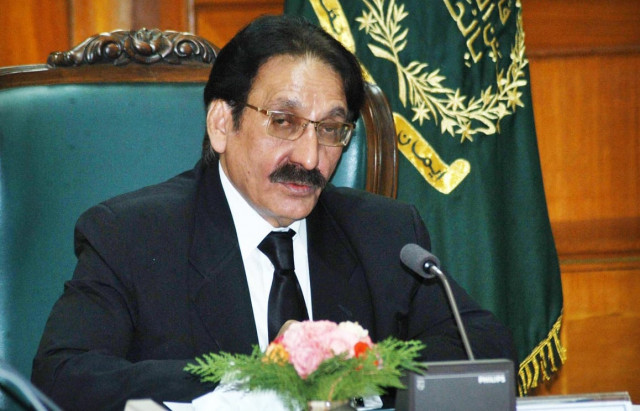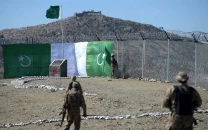Asghar Khan petition: Apex court summons former head of Military Intelligence
Expresses dismay over political parties’ inaction against those named in the 1990 election fraud.

As the Asghar Khan case nears it final stages, the Supreme Court expressed concern over the inaction of political parties, particularly the Pakistan Peoples Party, against those accused in the 1990 election rigging saga.
Justice Jawwad S Khawaja observed on Tuesday that the PPP-government had failed to initiate any investigations or a trial against the 1990 elections campaign perpetrators.
The court’s observations came after the counsel for former air chief Asghar Khan, Salman Akram Raja, suggested the court to deliver a judgment under which the military’s top guns could be brought to book if found guilty. He quoted the trial of military generals in Turkey as a precedent.
Heading a three-member bench, Chief Justice Iftikhar Muhammad Chaudhry, however, said it was the task of the executive to implement the court’s judgment. The government, however, has not fulfilled its constitutional duty to ensure the implementation of various judgments of the court in true spirit, he added. Justice Khawaja said it was also the government’s job to punish those responsible for the subversion of Article 6 of the Constitution.
The chief justice further said that while the court cannot ensure that the executive will implement the judgment in this case, they will examine whether there was any violation of the Constitution.
Asghar Khan’s petition alleges that the Inter-Services Intelligence doled out Rs140 million to various politicians in order to form a political alliance by the name of the Islami Jamhoori Ittehad (IJI) to counter PPP in the 1990 elections.
Justice Chaudhry observed on Tuesday that it was apparent that three important offices were involved in the case – those of the President, Chief of Army Staff and the ISI chief.
According to affidavits of then ISI chief General Asad Durrani’s affidavits, it seems that the President’s office was also involved in the ‘unconstitutional practice’, he added.
The court, he said, wants to make it clear through these proceedings that in future an alliance like the IJI would never be formed in violation of the Constitution.
Meanwhile, Advocate Raja told the court that the contents of Asghar Khan’s letter about the ISI’s political charter for election rigging were based on Gen Durrani’s affidavits, and were not intended to defame the ISI as an institution.
The court said it had taken exception to the contents of the letter and termed it a campaign to damage the reputation of the country’s institutions. Raja said that a clarification in this regard, would be submitted soon and requested the court to focus on the role of individuals in the case, as opposed to the institution. Also during Tuesday’s hearing, the court summoned another important player – the then head of the Military Intelligence (MI) Brigadier Hamid Saeed. Justice Chaudhry said that the court would now scrutinise each and every detail of the case.
At the outset of the proceedings, Adovate Raja requested the court to summon Ajlal Haider Zaidi, an alleged former member of president election cell, to record his statement about the existence of such a cell in the Presidency.
Justice Chaudhry said the court would decide whether to summon Zaidi or not, after receiving the Presidency’s reply over the existence of the political cell.
Meanwhile, former bureaucrat Roedad Khan, who denied allegations about his role in former president Ghulam Ishaq Khan’s established election cell, revealed more information about the ISI political cell before the bench.
He referred to the prime minister’s special assistant Rafee Raza’s prepared report about the scandal and the functioning of the political cell in the ISI.
The court adjourned the hearing till today (Wednesday).
Published in The Express Tribune, October 17th, 2012.



















COMMENTS
Comments are moderated and generally will be posted if they are on-topic and not abusive.
For more information, please see our Comments FAQ